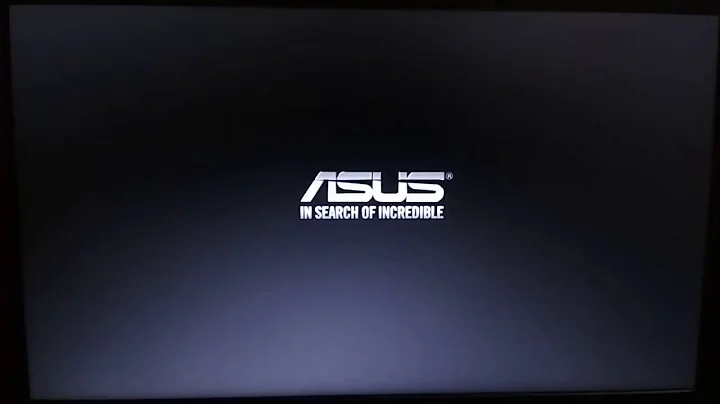Slow Ubuntu Boot [ata2: SRST failed (errno=-16)] and [ata2: reset failed, giving up]
Step 1 - Identify ATA2
It's a guess that ATA2 references /dev/sdb. The way to find out for sure is using:
$ ll /sys/block/
total 0
drwxr-xr-x 2 root root 0 Apr 10 16:46 ./
dr-xr-xr-x 13 root root 0 Apr 4 21:05 ../
lrwxrwxrwx 1 root root 0 Apr 10 16:46 loop0 -> ../devices/virtual/block/loop0/
lrwxrwxrwx 1 root root 0 Apr 10 16:46 loop1 -> ../devices/virtual/block/loop1/
lrwxrwxrwx 1 root root 0 Apr 10 16:46 loop2 -> ../devices/virtual/block/loop2/
lrwxrwxrwx 1 root root 0 Apr 10 16:46 loop3 -> ../devices/virtual/block/loop3/
lrwxrwxrwx 1 root root 0 Apr 10 16:46 loop4 -> ../devices/virtual/block/loop4/
lrwxrwxrwx 1 root root 0 Apr 10 16:46 loop5 -> ../devices/virtual/block/loop5/
lrwxrwxrwx 1 root root 0 Apr 10 16:46 loop6 -> ../devices/virtual/block/loop6/
lrwxrwxrwx 1 root root 0 Apr 10 16:46 loop7 -> ../devices/virtual/block/loop7/
lrwxrwxrwx 1 root root 0 Apr 10 16:46 nvme0n1 -> ../devices/pci0000:00/0000:00:1d.0/0000:3e:00.0/nvme/nvme0/nvme0n1/
lrwxrwxrwx 1 root root 0 Apr 10 16:46 sda -> ../devices/pci0000:00/0000:00:17.0/ata2/host1/target1:0:0/1:0:0:0/block/sda/
lrwxrwxrwx 1 root root 0 Apr 10 16:46 sr0 -> ../devices/pci0000:00/0000:00:14.0/usb1/1-1/1-1.3/1-1.3:1.0/host2/target2:0:0/2:0:0:0/block/sr0/
Ignore the loop1 through loop7 entries.
-
sda(a hard drive) is on channelata2 -
nvme0n1(an SSD) is on0000:3e:00.0(actually hardwired to the CPU @ 40 GB/s) -
sr0is onusb1
So your first step is to discover which devices are on ata2
Step 2 - Check devices
ide devices can be chained with master/slave arrangement and if on ata2 you might need to check their settings whilst removing them one by one to ascertain which is defective.
Someone with same error discovered their DVD/CD drive on ata2 was the culprit and defective: "ata2: link is slow to respond, please be patient" during boot
Another person found a defective SSD was the problem: ata1: link is slow to respond, please be patient (ready=0)
By all means run fsck or whatever drive testing utilities at your disposal too.
Related videos on Youtube
Jonathan
Knows 25 computer languages. Former global technical director at DreamWorks Animation SKG. Up for hire for web, app, game, & VR dev http://leadersandco.com
Updated on September 18, 2022Comments
-
Jonathan over 1 year
This Motherboard with a triple boot setup, booting in AHCI mode
Here is the relevant message (pulled from
dmesg), note the long delay in timestamp between them:[ 6.528119] ata2: link is slow to respond, please be patient (ready=-19) [ 11.028120] ata2: SRST failed (errno=-16) [ 16.540117] ata2: link is slow to respond, please be patient (ready=-19) [ 21.040117] ata2: SRST failed (errno=-16) [ 26.552117] ata2: link is slow to respond, please be patient (ready=-19) [ 56.072118] ata2: SRST failed (errno=-16) [ 56.072125] ata2: limiting SATA link speed to 1.5 Gbps [ 61.104117] ata2: SRST failed (errno=-16) [ 61.104142] ata2: reset failed, giving upSeems to work fine on Windows. It's just an Ubuntu issue.
All my drives seem firmly connected, with no jumpers, most are SSD but some are IDE. I have like 6 drives. One is a Hackintosh (Mac GPT drive) and another is Windows. One SSD is connected via eSATA
I don't know if
ata2is the same as/dev/sdbbut if it is, this may be interesting:$ sudo fsck /dev/sdb fsck from util-linux 2.31.1 e2fsck 1.44.1 (24-Mar-2018) ext2fs_open2: Bad magic number in super-block fsck.ext2: Superblock invalid, trying backup blocks... fsck.ext2: Bad magic number in super-block while trying to open /dev/sdb The superblock could not be read or does not describe a valid ext2/ext3/ext4 filesystem. If the device is valid and it really contains an ext2/ext3/ext4 filesystem (and not swap or ufs or something else), then the superblock is corrupt, and you might try running e2fsck with an alternate superblock: e2fsck -b 8193 <device> or e2fsck -b 32768 <device> Found a gpt partition table in /dev/sdbA commentary on the cause: https://www.redhat.com/archives/rhl-list/2006-October/msg03892.html
Because it's a GPT hackintosh drive:
$ sudo gdisk /dev/sdb -l GPT fdisk (gdisk) version 1.0.3 Partition table scan: MBR: protective BSD: not present APM: not present GPT: present Found valid GPT with protective MBR; using GPT. Disk /dev/sdb: 1953525168 sectors, 931.5 GiB Model: ST31000524AS Sector size (logical/physical): 512/512 bytes Disk identifier (GUID): 384E6D96-A1EE-4D32-8FE5-14B63E4BF049 Partition table holds up to 128 entries Main partition table begins at sector 2 and ends at sector 33 First usable sector is 34, last usable sector is 1953525134 Partitions will be aligned on 8-sector boundaries Total free space is 262157 sectors (128.0 MiB)Verify disk passes:
$ sudo gdisk /dev/sdb $ v No problems found. 262157 free sectors (128.0 MiB) available in 2 segments, the largest of which is 262151 (128.0 MiB) in size. -
Jonathan about 5 yearsI'm traveling so I can't verify this yet but I'll give you the bounty and i'll followup later




